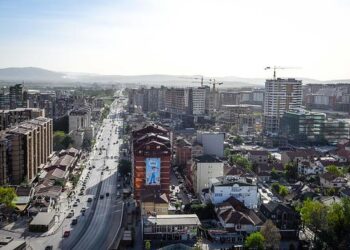Kosovo’s recent elections have been hailed by the United Nations Peacekeeping mission as a significant step toward greater inclusivity and stability in the region. Marked by peaceful voting processes and broader participation across diverse communities, the polls reflect progress in Kosovo’s democratic consolidation. However, despite these positive developments, challenges such as ethnic tensions and political fragmentation continue to pose obstacles to long-term peace and governance. This article provides an overview of the electoral milestone while examining the hurdles that remain on Kosovo’s path to enduring stability.
Kosovo’s Election Demonstrates Significant Progress in Inclusivity and Stability
Kosovo’s recent elections have set a new benchmark in the Balkan region, reflecting notable advancements in both inclusivity and political stability. For the first time, diverse communities including minorities and marginalized groups played an active role in the electoral process, underscoring a collective commitment to democratic principles. Voter turnout among ethnic minorities rose by 15% compared to previous elections, signaling increased trust in national institutions and their ability to represent all citizens fairly. International observers have commended the transparent electoral procedures and the peaceful environment maintained throughout the voting period.
Despite these encouraging developments, certain challenges persist that require sustained attention and cooperation. Key issues such as electoral integrity, media freedom, and inter-ethnic dialogue remain focal points for both domestic authorities and international partners. Below is a brief overview of progress indicators versus ongoing challenges:
| Aspect | Progress | Remaining Challenges |
|---|---|---|
| Voter Participation | Increased minority engagement | Overall youth turnout remains low |
| Political Dialogue | Enhanced inter-community talks | Need for stronger conflict resolution mechanisms |
| Media Environment | More access to diverse voices | Press freedom limitations linger |
- Improved election monitoring by national and international bodies strengthens credibility.
- Community outreach programs helped bridge ethnic divides prior to elections.
- Continued vigilance is needed to safeguard democratic gains amid regional tensions.
United Nations Calls for Continued Support to Address Political Fragmentation and Minority Representation
The United Nations emphasizes the urgent need for sustained efforts to overcome the fragmented political landscape in Kosovo. Despite notable progress in fostering an inclusive electoral process, persistent divisions among political parties and communities impede the development of cohesive governance. Strengthening minority representation remains a top priority, as marginalized groups continue to face challenges in having their voices heard effectively within local and national institutions. The UN encourages stakeholders to engage in constructive dialogue and implement frameworks that guarantee equitable participation across all ethnic and political lines.
Key areas of focus outlined by the United Nations include:
- Enhancing institutional transparency to build trust and promote accountability.
- Supporting cross-community initiatives that bridge ethnic divides and foster reconciliation.
- Ensuring legal protections for minority rights during political engagement and decision-making processes.
- Monitoring election processes to safeguard inclusivity and fairness in future vote cycles.
| Aspect | Current Status | UN Recommendations |
|---|---|---|
| Political Fragmentation | High | Dialogue Facilitation |
| Minority Representation | Below Target | Inclusive Legislation |
| Electoral Integrity | Improved | Continued Monitoring |
| Community Trust | Moderate | Transparency Initiatives |
Experts Recommend Strengthening Electoral Institutions to Sustain Peace and Promote Democratic Governance
International observers and local analysts alike emphasize the critical role of robust electoral institutions in maintaining Kosovo’s hard-won peace and democratic trajectory. Strengthening these bodies means not only improving transparency and accountability but also enhancing voter confidence and participation. Experts advocate for increased investment in the training of election officials, modernization of voter registration systems, and the establishment of clear, enforceable regulations to mitigate electoral fraud and misinformation.
Key recommendations include:
- Deploying independent audit mechanisms to oversee electoral processes
- Implementing comprehensive civic education campaigns aimed at marginalized communities
- Ensuring gender parity in election management and candidate representation
- Fostering collaboration between government agencies, civil society, and international partners
| Institutional Aspect | Current Status | Recommended Action |
|---|---|---|
| Voter Registration | Outdated database | Integrate biometric verification |
| Election Monitoring | Limited coverage | Expand domestic observer networks |
| Candidate Vetting | Lack of transparency | Implement clear eligibility criteria |
To Conclude
As Kosovo closes a chapter on its latest inclusive and peaceful elections, the United Nations Peacekeeping mission underscores this milestone as a significant step forward in the territory’s democratic journey. While the voting process reflects growing political maturity and engagement across diverse communities, persistent challenges such as ethnic tensions and political fragmentation remain. Continued international support and local commitment will be vital to sustaining progress and fostering long-term stability in Kosovo’s evolving political landscape.














